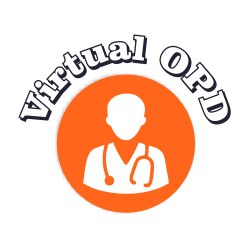Autism Spectrum Disorders are a group of intricate neurodevelopmental disorders in children, which usually surface during the first three - four years of the child’s life. Children presenting autism symptoms may find difficulties in comprehending simple things or commands, or phrases which are used in everyday life. They often face trouble in perceiving beyond the literal meaning or things, emotions, and even instructions. This may lead them to appear as having difficulty in understanding, problem solving, speech, social interactions and behavior.

Autologous Bone Marrow Mononuclear Cells Grafting for Autism treatment in India and across the globe, is being thoroughly researched. Doctors are working on Autologous bone marrow mononuclear cells grafting using and all over the globe, as the prospective therapy for children showing signs of Autism.
Autism is a complex neurodevelopmental disorder, yet several researchers have come together to study on how this disorder develops, its after effects on brain and plausible best autism treatment.
The two key pathologies linked with autism are lack of oxygen supply to the brain and immune degeneration. These factors are directly associated with a hampered brain function. Additionally an imbalance in the brain activity can lead to formations linked with autism.
The whole concept of Autologous Bone Marrow Mononuclear Cells Grafting at NeuroGen BSI, one of the best autism treatment centers in India, is based on the fact that bone marrow-derived cells hold the capacity to develop into different cells and structure specialized cells from the mother cell. These bone marrow-derived cells can help repair the affected neural tissue at the molecular, structural and functional level. They get to the core of the neuropathology of autism with the help of paracrine disciplinary functions. It is able to regulate cell differentiation, tissue and organ repair and anti-inflammatory actions. Hence, Autologous bone marrow mononuclear cells grafting for Autism is now widely considered treatment by researchers and doctors. Watch the video to know more about Autologous bone marrow mononuclear cells grafting for Autism.
At NeuroGen BSI, one of the best autism treatment centers, we have effectively treated over 1800 cases through for autism in India. We are also amongst the centers which provide the best autism treatment in India through autologous bone marrow mononuclear cells grafting. With a focused research through its autism treatment center, NeuroGen BSI has published the world’s first clinical study in the International Journal “Stem Cell International.” The study focuses on how for Autism could be one of the best autism treatments in India. The study showed the effect of cells in autism treatment in 32 patients. The path breaking results observed through this study has demonstrated the safety and efficacy of autologous bone marrow mononuclear cells grafting for autism in India.
The whole concept of autologous bone marrow mononuclear cells grafting for Autism at NeuroGen BSI, one of the best autism treatment centers in India, is based on the fact that autologous bone marrow derived cells hold the capacity to develop into different cells and structure specialized cells from the mother cell. Our patients have shown remarkable improvements in various aspects proving the benefits of autologous bone marrow mononuclear cells grafting for Autism in India. The behaviour patterns that are observed in children with autism such as hyperactivity, engaging in stereotypical and repetitive motor mannerisms have decreased significantly. Immense improvements are also seen in their sensory aspects and motor activities. At NeuroGen BSI’s autism treatment center, several parents have also reported that the concentration and the attention span of their children are much better than before after autologous bone marrow mononuclear cells grafting for autism in India.
STATISTICS OF OVERALL IMPROVEMENTS IN PATIENTS AFTER AUTOLOGOUS BONE MARROW MONONUCLEAR CELLS GRAFTING FOR AUTISM IN INDIA
90% patients showed symptomatic improvement
The overall improvements that are seen in patients after autologous bone marrow mononuclear cells grafting for Autism are:
Reduction in self stimulatory behaviour.
Improvement in eye contact
Improvement in speech
Improvement in communication skills
Improvement in social interactions
Reduction in aggressive behaviour
The medical results of the autism patients treated to date with autologous bone marrow mononuclear cells grafting at NeuroGen BSI’s Autism treatment center, shows that 91% of these patients showed an overall improvement on Clinical Global Impression II (CGI-II) scale.
These functional enhancements that have been seen in our patients can be correlated with the improvements in the brain metabolism as well that is observed in the PET-CT (Positron emission tomography- computerized tomography) scans of the patients.
OBJECTIVE RADIOLOGICAL EVIDENCE OF SUCCESS AFTER AUTOLOGOUS BONE MARROW MONONUCLEAR CELLS GRAFTING FOR AUTISM
The usage of autologous bone marrow has shown major clinical and objective radiological improvements in children with autism. The treatment is easy, safe and effective as it aims at neurological repair.

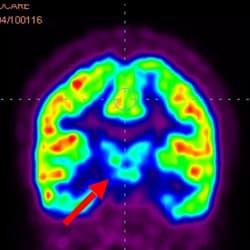
Pre Autologous bone marrow mononuclear cells grafting for Autism in India PET CT scan show the blue areas that represent reduced brain activity due to the damage that occurs to the neural tissue in autism.

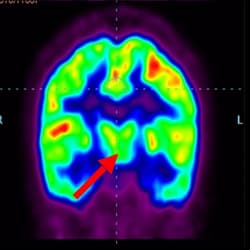
Post Autologous bone marrow mononuclear cells grafting for Autism in India PET CT scan show the blue areas have reduced indicating that the damaged tissues have been repaired highlighting the positive effects of the cellular therapy for autism.

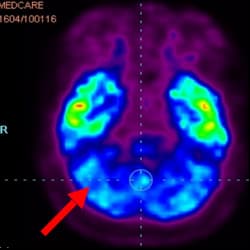
Pre Autologous bone marrow mononuclear cells grafting for Autism in India PET CT scan show the blue areas that represent reduced brain activity due to the damage that occurs to the neural tissue in autism.

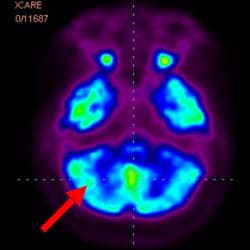
Post Autologous bone marrow mononuclear cells grafting for Autism in India PET CT scan show the blue areas have reduced indicating that the damaged tissues have been repaired highlighting the positive effects of the cellular therapy for autism.

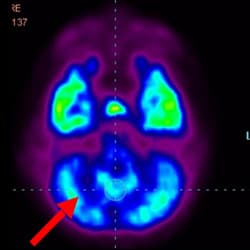
Pre Autologous bone marrow mononuclear cells grafting for Autism in India PET CT scan show the blue areas that represent reduced brain activity due to the damage that occurs to the neural tissue in autism.

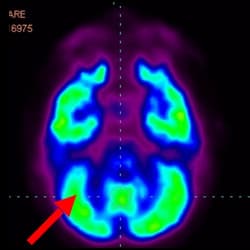
Post Autologous bone marrow mononuclear cells grafting for Autism in India PET CT scan show the blue areas have reduced indicating that the damaged tissues have been repaired highlighting the positive effects of the cellular therapy for autism.

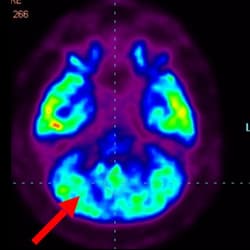
Pre Autologous bone marrow mononuclear cells grafting for Autism in India PET CT scan show the blue areas that represent reduced brain activity due to the damage that occurs to the neural tissue in autism.

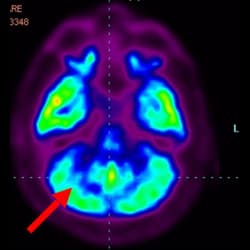
Post Autologous bone marrow mononuclear cells grafting for Autism in India PET CT scan show the blue areas have reduced indicating that the damaged tissues have been repaired highlighting the positive effects of the cellular therapy for autism.

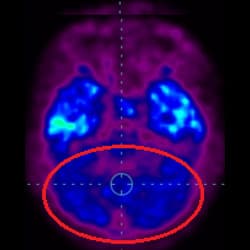
Pre Autologous bone marrow mononuclear cells grafting for Autism in India PET CT scan show the blue areas that represent reduced brain activity due to the damage that occurs to the neural tissue in autism.

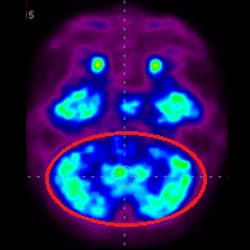
Post Autologous bone marrow mononuclear cells grafting for Autism in India PET CT scan show the blue areas have reduced indicating that the damaged tissues have been repaired highlighting the positive effects of the cellular therapy for autism.

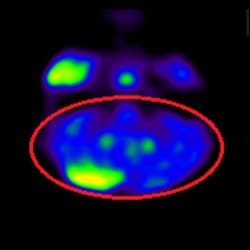
Pre Autologous bone marrow mononuclear cells grafting for Autism in India PET CT scan show the blue areas that represent reduced brain activity due to the damage that occurs to the neural tissue in autism.

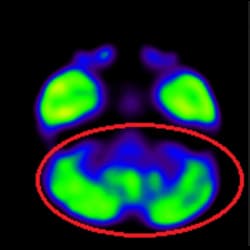
Post Autologous bone marrow mononuclear cells grafting for Autism in India PET CT scan show the blue areas have reduced indicating that the damaged tissues have been repaired highlighting the positive effects of the cellular therapy for autism.
A treatment plan for Autism cannot be exactly the same for all children with Autism. Whether traditional, or unconventional, they have to be personalised. This personalisation can only be achieved with a thorough evaluation of the child. However, it is imperative that the following therapies be followed religiously after Autologous bone marrow mononuclear cells grafting, for the best possible outcome!
One of the most important causes for autism spectrum disorder is the genetic factor. It was affirmed that heritability was inherent through the study of autism in twins. It is difficult to define or explain why autism occurs merely on the basis of genetics. No solid reasons could be discovered even after use of molecular tools and analytical tools. A simple solution cannot be the answer when more than one gene is involved. Researchers are studying the possibility of genetic imprinting too. But still there is no definitive answer to this question.
In a journal of JAMA Pediatrics, researchers from Aarhus University in Denmark have stated that children with older siblings diagnosed with an autism spectrum disorder are likely to carry on the same. The child born to the same parents have a 7.5% risk factor to be detected with autism. While maternal born siblings have a 2.4% greater risk factor, paternal half siblings have a lesser risk factor. Therefore it is essential that parents need to keep all risk factors in mind before deciding upon having another child. In case you decide to have another child, discuss matters clearly with the doctor. Take all the preventive measure needed like prenatal folic acid and avoid overexposure to toxins.
Even though there is no cure for autism that has been discovered but it does not mean that nothing can be done for a child with autism. There are medications and therapies to help people cope up but it works better on people with higher function. For example, medication will better help to manage high energy levels, lack of concentration, depression and abnormal behaviour. Parents having an autistic child will better manage the complex behavioural of the child.
Medications cannot fully cure your child of autism but can only provide temporary relief. But once the behavioural symptoms are brought under control, you can take the next step. There are several therapy programs like psychological therapy, occupational therapy, vocational training, and speech therapy and so on to help your child cope up with the problem. Consult a proficient pediatrician or psychiatrist to discuss your child's behavioural details.
Many parents tend to be in a tight spot thinking about their child's future. They want the best for the child including sending them to a school where the child gets nurtured to the fullest. Since autistic children are comparatively more sensitive than others, they need special attention. At present, the number of schools for children with autism is inadequate.
Broadly speaking schools may be classified into the following:
Mainstream or Regular
Inclusive or Integrated
Special services schools
Home-schooling
Residential schools or homes
Autistic children have a difficult time coping up in a normal set up. A regular school can get very challenging for the child. This is not to say that an autistic child won't excel in a standard setting. But smaller and private schools can give better attention to your child rather than larger schools.
This question will be better answered if you consult a developmental pediatrician. An early intervention to tackle the problem would speed up the healing process. Research has revealed that children with ASD's treated before they complete 48 months of age have a greater chance of improving rather than children treated after 48 months of age. A multi-disciplinary holistic approach is needed for autism management.
It consists of:
Clinical Psychologist
Occupational Therapist
Speech and Language pathologist
Dietician
Physiotherapist
Art, play, music, drama therapist
Each of the above professionals will target different aspects in the treatment of your child Newer forms of therapies like cell therapy and hyperbaric oxygen therapy are effective newer forms of therapies.
No, there are no ethical concerns surrounding adult stem cell research and therapy. Ethical concerns are mostly occurs through the use of embryonic cells. Our therapy consists of using cells which are taken out from the patient's own body and it is free from ethical concerns.
No, the treatment is not painful as the therapy is done under local anesthesia and a mild sedation. There is no major pain or discomfort during or after the procedure.
The entire treatment process is safe and till date none of our patients have shown any signs of neurological deterioration. In rare cases, side effects like headache for 3-4 days, neck or back pain, vomiting, mild rash or pain at the area of bone marrow aspirations may arise. Some unexpected medical complication can occur but that is just a possibility.
This may vary from patient to patient. Some patients make speedy improvements by 3-6 months while in some cases patients take several months or years together to heal. And there are some patients that recover even before their discharge.
This will depend on the condition of the patient. If the patient shows signs of improvement after the first surgery then a second session may be suggested by a team of experts. The second transplantation can transpire anytime between 3-6 months of the first therapy.
We will have to review the entire dose of medication before coming upon a decision. Generally we do allow the patients to continue their other medication. But it is better to consult a doctor beforehand.
